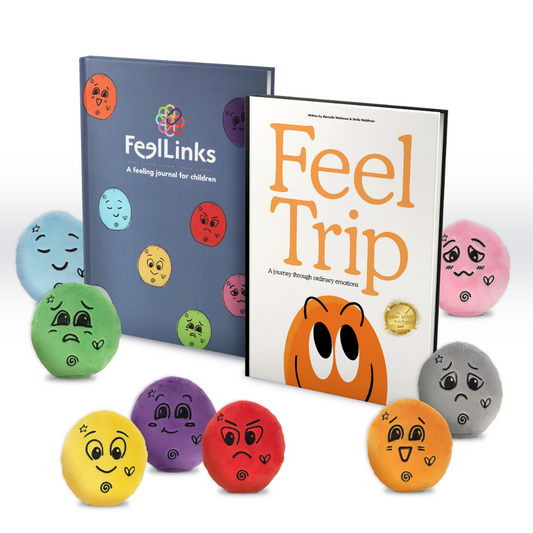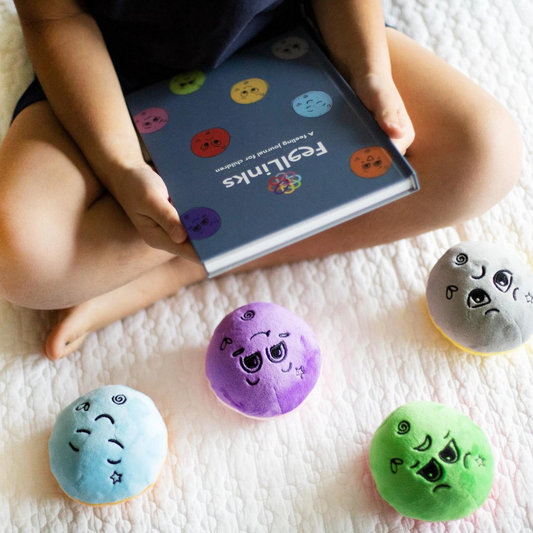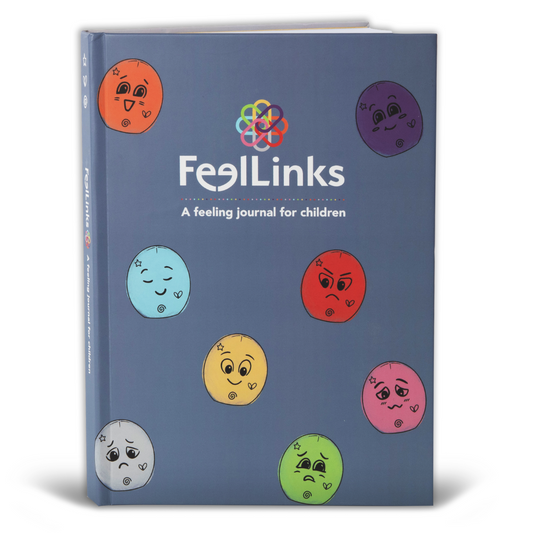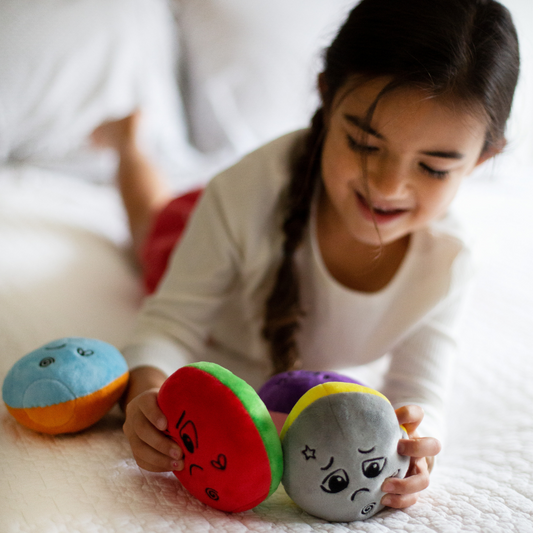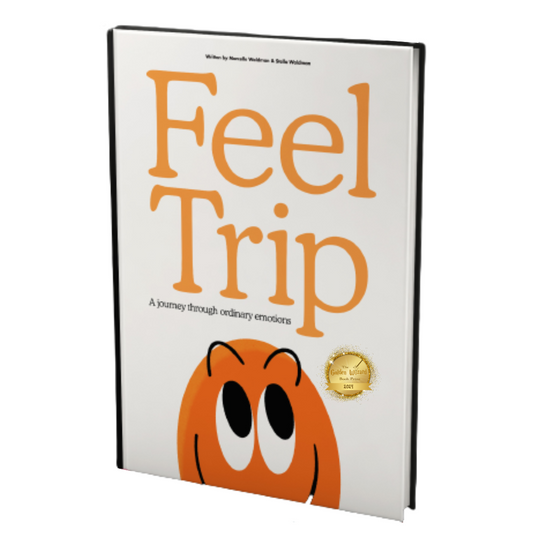The Mix of Emotions As Children Transition Out of the School Year
Share

How we approach change and transitions with our children has a direct effect on their mindset and can greatly effect their feelings towards it. Ending the school year can bring on a multitude of mixed emotions for our children (and us!). You might be noticing feelings of fear, anxiety, sadness, joy, anger, grief, or happiness from your child.
As our children say goodbye to peers, adored teachers, and school staff, head away from secure school routines, and some even moving on to new schools - our children's emotions can be greatly effected.
Throughout our lives, endings will typically bring on feelings of loss and grief, even if it’s something we have looked forward to, like summer vacation. Children have been in established school routines and ending that, along with the unknown of what happens next, are all causes for many mixed feelings to bubble up.
Children might be asking themselves questions, such as:
- What will my summer plans look like?
- Will I see my friends?
- Will these friends be in school with me next year?
- Who will my teacher be next year?
- What will I do while my parent(s) works?
- What will that new camp be like?
- How will I feel at overnight camp?
- What will my new school be like next year? *Particularly difficult for those moving homes or moving on to middle school, high school or graduating.
You may have noticed your child experiencing feelings of sadness or anxiety lately, or maybe you are seeing new, unwanted behaviors arise. Below are some ideas that can help your child (and you) make the transition from the school year to summer break with greater ease.
- Listen to your child: Discuss the inevitable end to the school year. Ask your child how they are feeling, if they have any questions for you about what is ahead over summer, or if they have questions about next year? Listen to them and validate how they feel. Let them know that you hear them and you will do what you can to help them understand what summer will look like for your family.
- Do some research: Try to get some information on what next year might look like. Talk with students/families that are about to complete, or have competed, the grade level ahead. Gain some insight as to what they studied and what some of their favorite activities were. My daughter entered middle school this year, so last summer we met with our high school neighbor and she was able to talk with my daughter about her middle school experience. This was such a great way to relieve some of her anxiety about going on to middle school. Knowing more can help alleviate some of the tougher emotions being felt your child; it may help them feel more secure about moving on.
- Set up summer expectations: Let your child(ren) know what your family expectations are for the summer in your household. This includes topics regarding self-care, household responsibilities, academic engagement, and what your availability will look like day-to-day if you are working. This is one way to help settle their minds as many children will find comfort in just “knowing”.
- Calendars and checklists: Share your family’s plans for summer and put them on a calendar. Add activities, camps, trips, work trips, get-togethers, playdates, etc. on a calendar that is posted in a central place for everyone to see. In addition to a calendar, in our home, we also have a whiteboard with daily to-do lists. These contain every-day type stuff from personal care routines, to household chores, plans for the day, what time we need to leave the house, and getting in some academic time (ie: reading, coding, etc.). My children are 10 and 12 years old – there are many ways to go about calendars and checklists for all ages. For younger children, picture schedules are a great way to help them get through routines and activities that you’d like them to complete. For example, you might ask your child to brush teeth, eat breakfast and get dressed for the day – listing this out somewhere visible or using a picture schedule for this routine, is a great way to avoid some of the summer struggles.
- Create a summer bucket list: As soon as summer is approaching (or literally on day one) – my daughter takes out a huge Post It chart paper and begins our summer bucket list. We all get to add activities, places to go, games to play, people to see, and goals to accomplish. It’s such a blast to knock things off our list and see how well we accomplished it all when summer comes to an end (another time of mixed emotions!). This is such a fun family activity and it helps children see all the things they have to look forward to!
- Summer playdates: Schedule time with friends over the summer. Children miss their peers and our younger children may not have a way to communicate with peers over the summer unless you do it for them. It might even be fun to schedule a playdate at your child’s elementary school - children love going back to their favorite school playground over summer.
- Celebrate!: Celebrate the end of the school year with something exciting for your child! Whether it’s a day at the beach with friends or family, a special outing, or ice cream sundaes, celebrate the wonderful accomplishments of the school year. In our family, when our children get off the bus, we Silly String them and then enjoy a sweet treat of donuts or popsicles with the neighborhood kids. A joyful way to kick off the start to summer!
- New things: Summer is a great time to learn a new skill, try a new hobby, or learn about an interesting topic. Maybe it’s chalk art, rock painting, bracelet making, trying a new sport or instrument, learning to swim or joining the local library reading challenge. Whatever it may be, more than likely, there is time for your child to try something new! Talk with them, see what interests them!
- ‘Stands’ for cause: Is there a particular cause or organization that's close to your child's heart? If so, they may want to raise money for them or plan a card making, clothing or book drive. Maybe your child would like to help clean out the garage and have a garage sale, plan a lemonade stand, sell baked good or create crafts to sell to raise money for a cause. This is a wonderful way for your child to engage in something meaningful for others while having fun, all at the same time!
I hope that you have found these ideas helpful in transitioning your child out of the school year and into summer. If you have other ideas, I would love for you to comment so that we can all fill our toolkits with as many ideas as possible!
Happy Summer! ☀️
With Gratitude,
Marcelle

